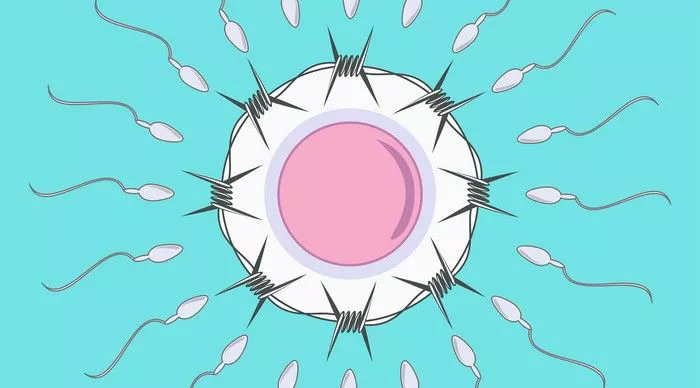When it comes to fertility and conception, there’s no shortage of myths and misconceptions circulating. One such myth revolves around the consistency of sperm and its potential impact on pregnancy. But can thick sperm really cause pregnancy? Let’s dive into the science behind this notion and separate fact from fiction.
Understanding Sperm Consistency:
Before delving into the question at hand, it’s essential to understand the various factors that can affect the consistency of sperm. Sperm consistency refers to the viscosity or thickness of semen, which can vary among individuals and may be influenced by factors such as hydration, diet, and overall health. While some men may produce thicker semen, others may have a more watery consistency.
While the thickness of semen doesn’t directly influence pregnancy, it can affect sperm mobility within the female reproductive tract. Thick semen may make it more challenging for sperm to travel efficiently, potentially hindering their journey to reach the egg. However, sperm themselves are highly specialized cells designed to navigate various environments, including those with varying viscosity.
Dispelling the Myth:
The notion that thick sperm can cause pregnancy is, in fact, a misconception. Pregnancy occurs when a sperm cell successfully fertilizes an egg released by the female during ovulation. The consistency of sperm has no bearing on its ability to fertilize an egg. Whether sperm is thick or thin, its primary function remains the same – to reach and penetrate the egg for fertilization.
Thicker semen may provide a protective environment for sperm, shielding them from external factors that could compromise their viability. However, it’s essential to note that sperm must still possess adequate motility and morphology to overcome any challenges presented by thick semen. Even if semen is thick, if sperm quality is optimal, they can still navigate through the reproductive tract and fertilize an egg.
The Role of Sperm Motility:
While sperm consistency may not directly impact pregnancy, sperm motility – the ability of sperm to move effectively – is crucial for fertilization. Healthy sperm exhibit vigorous motility, enabling them to swim through the female reproductive tract and reach the egg. Regardless of the thickness of semen, sperm with poor motility may struggle to navigate the reproductive environment and achieve fertilization.
Factors Affecting Sperm Health:
Rather than focusing on the thickness of sperm, it’s essential to consider factors that can affect sperm health and fertility. These include:
Sperm Count:
The number of sperm present in semen plays a significant role in fertility. A higher sperm count increases the likelihood of successful fertilization.
Sperm Motility:
As mentioned earlier, sperm motility is essential for reaching and penetrating the egg. Healthy sperm exhibit progressive motility, which enhances their chances of fertilizing the egg.
Sperm Morphology:
The shape and structure of sperm can also impact fertility. Abnormalities in sperm morphology may hinder their ability to penetrate the egg and achieve fertilization.
Overall Health:
Lifestyle factors such as diet, exercise, smoking, and alcohol consumption can affect sperm health. Maintaining a healthy lifestyle can contribute to optimal sperm quality and fertility.
Consulting a Healthcare Provider:
If couples are experiencing difficulty conceiving, it’s essential to consult a healthcare provider for a comprehensive evaluation. A fertility specialist can assess both partners’ reproductive health and identify any underlying factors contributing to infertility. This may involve conducting tests to evaluate sperm quality, ovulation, and overall reproductive function.
Conclusion:
In conclusion, the consistency of sperm, whether thick or thin, does not determine its ability to cause pregnancy. Fertility and conception depend on various factors, including sperm count, motility, morphology, and overall health. While thick sperm may be a natural variation, it does not affect fertility as long as sperm quality remains optimal. Couples concerned about fertility should seek guidance from a healthcare provider to address any underlying issues and explore appropriate treatment options. Just as a diverse array of ingredients contributes to a delicious meal, multiple factors influence fertility, and understanding them is key to achieving conception.
[inline_related_posts title=”You Might Be Interested In” title_align=”left” style=”list” number=”6″ align=”none” ids=”1695,1697″ by=”categories” orderby=”rand” order=”DESC” hide_thumb=”no” thumb_right=”no” views=”no” date=”yes” grid_columns=”2″ post_type=”” tax=””]






















